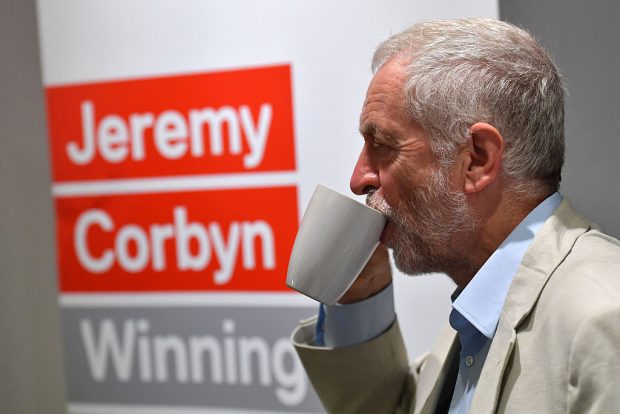Brits sometimes think that ‘personality politics’ is a bad thing. Jeremy Corbyn has certainly suggested as much; just before he won the Labour leadership last September, he dismissed the concept as juvenile and egoistic. Instead, he said: ‘We are not doing celebrity, personality or abusive politics – this is about hope.’
But although Corbyn has stuck to that belief, he’s wrong – and a big part of his problem is not realising that. While some say the idea of personality politics is an American import, in reality Brits have been doing it for decades. Take Harold Wilson’s advisers planting hecklers at TV hustings so the Labour leader could deploy his best put-down lines. That was in 1964. And ever since the Wilson era, political success has relied on a leader’s ability to cultivate a compelling persona.
Instead, Corbyn’s muddled sentiment about the unimportance of personality in politics – a mantra of his leadership – has framed the gradual failure of his political project. Hope does not morph into a more morally righteous ideal if it’s said by someone who sends you to sleep. In fact, throughout modern politics, the great and the good have shown the importance of charisma; just ask Barack Obama and Martin Luther-King.
But Corbyn isn’t interested in all of that. By contrast, Corbyn’s view of political campaigning – which takes inspiration from the lethargy of a retired accountant – has strangled his ideological vision. On the question of Brexit, for example, Corbyn failed to galvanise working-class voters. While some blamed the fact he was secretly pushing for a ‘Leave’ vote, it was much more likely Corbyn’s pro-EU pitch fell victim to his innately flat electioneering. When you compare Boris Johnson’s emotional, flamboyantly eloquent appeals with Corbyn’s pumped-out stale speeches, it’s no surprise Brits plumped for Brexit.
After the EU referendum, things haven’t got any better for Corbyn. A sharpened axe has been dangling perilously over his head, wielded by infuriated Labour MPs. Just ten months after his election as Labour Party leader, politicians who once backed Corbyn are leading the effort to topple him. This would have been avoided if Labour MPs admired their leader. But instead of a confident, compelling leadership style to appeal to every wing of the party, Corbyn’s leadership has been driven by chronic paranoia and boredom. And now they’ve been branded as enemies, Corbyn’s parliamentary colleagues have no reason to stay loyal, fuelling the party’s civil war.
There are now few Labour MPs still willing to publicly defend Corbyn; most have tried to distance themselves from his politically toxic regime. Hard-headed Momentum activists will cry about the betrayal of Corbyn by his allies in the shadow cabinet. Yet, from any other perspective it’s difficult to begrudge their decision. There’s a strong appetite across the Western world for grassroots-orientated politics. People are rising up against the status quo; challenging the self-serving structures of distant elites. Corbyn’s failure to capitalise on this mood is a betrayal of his own beliefs.
At times, personality politics is vacuous and frustrating. It can also sometimes swallow up reasoned debate. Yet, without it, politics is uninspiring, just as Jeremy Corbyn has proven. And, by glibly dismissing this long-established feature of British politics, it’s no surprise Corbyn has been unable to captivate the Labour Party, never mind the nation.






Comments